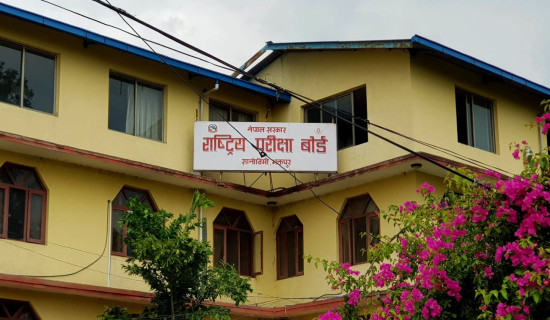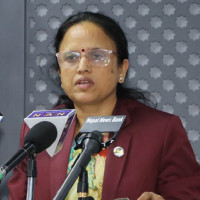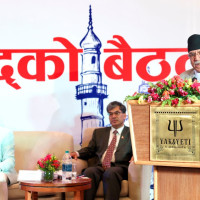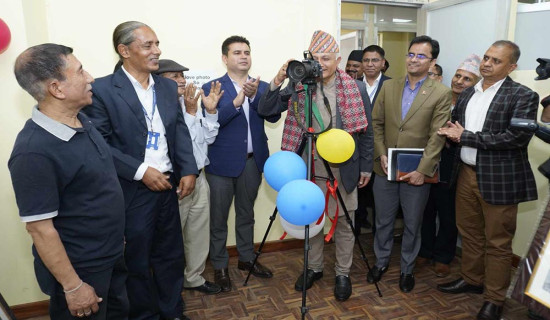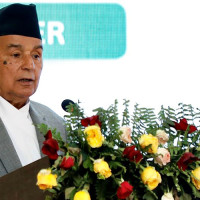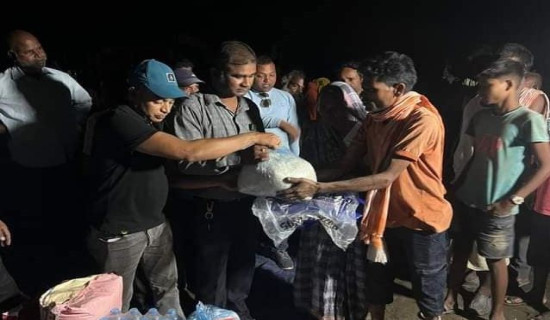- Friday, 26 April 2024
The well that inspired Bhanubhakta at risk
By Amar Raj Naharki,Tanahun, Feb. 7: Bhanubhakta Acharya is a name like no other in Nepali literature. Regarded as the pioneer poet or Adikabi, Acharya’s timeless writings continue to inspire poets and authors to this day. But the well that inspired Acharya to begin writing may now be lost thanks to the expansion of the Muglin-Pokhara section of the Prithvi Highway.
The Ghasi Kuwa, the well is known after the grasscutter (Ghasi) who built it, and the Bhanu-Ghasi Memorial Park that it lies in fall on the proposed path of the road section. Hence, if it is expanded as currently planned, the well will be lost. This has left the locals worried.
The story goes that Acharya was on his way back from his maternal uncle’s home when he met this grasscutter. They began talking and the cutter told Acharya that he planned to use the little money he had earned by cutting and selling grass to dig a well so people passing by would get fresh water to drink.
This, the grasscutter said, would be his legacy and would be what people remembered him by after his death.
His words had a great impact on Acharya and ultimately led him to translate the Ramayana from Sanskrit to Nepali and begin his literary journey that vitalised the Nepali language.
Acharya himself praised the Ghasi in one of his poems:
“With what he earned through dedication to grass
He dug the well so his name would last
The Ghasi, so poor, yet what a spirit
I, Bhanubhakta, am rich, yet glaikit.”
This well is a landmark like no other. Many know of it and have visited it. But now it is under threat, worried Prem Raj Pantha, local resident and employee of the Bhanu-Ghasi Memorial Park Conservation Committee. “This important site should be protected. History should not be erased.”
He added, “We have taken pictures here. We have drunk the water from this well. We all love this place so we should all take an interest in its conservation.”
Member of the House of Representatives from Tanahun Constituency 1 and leader of the Nepali Congress party Ram Chandra Paudel also agreed that this well was too important to be sacrificed for road expansion. “I have instructed everyone involved to ensure that the well is not damaged while widening the road,” he said, expressing the belief that the well would not be destroyed.
Baikuntha Neupane, mayor of Vyas Municipality, said that the local government was in talks with the concerned bodies and was working to ensure the existence of the valuable well. “The Ghasi well remains as a testament that a person need not be wealthy to inspire and educate,” he said.
Residents of the area believe that the Mugling-Pokhara road can be widened without affecting the well if the authorities raised the banks of the Buldi River and built on the land opposite to the water source. One of them is Bhoj Raj Pantha.
“We understand that the road needs to be expanded to handle increased traffic. But that should not come at a cost of our linguistic history. This is a sacred place that should be maintained,” he said.
Located at a distance of five kilometres east from the district headquarters Damauli, the well is placed in high regard by scholars, linguists and ordinary citizens alike. It held such eminence that the former Village Development Committee (VDC) it was located in was also named Ghasi Kuwa. The VDC was later incorporated into Ward No. 12 of Vyas Municipality. The park conservation committee stated that destroying the well would destroy a structure vital to Adikabi Acharya’s identity.
The Chinese company China Communications Construction Company is currently working to expand the Prithvi Highway.



